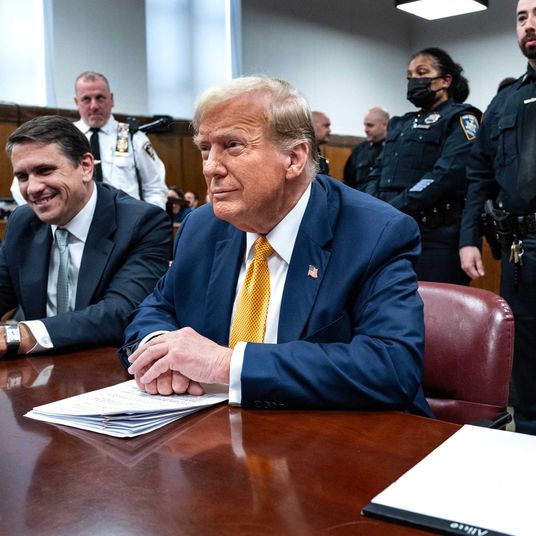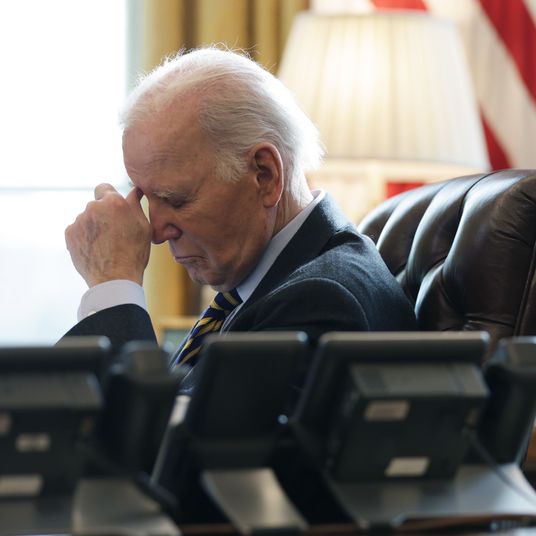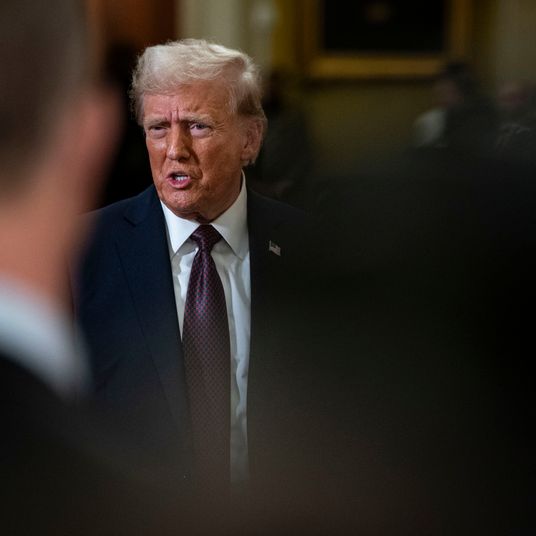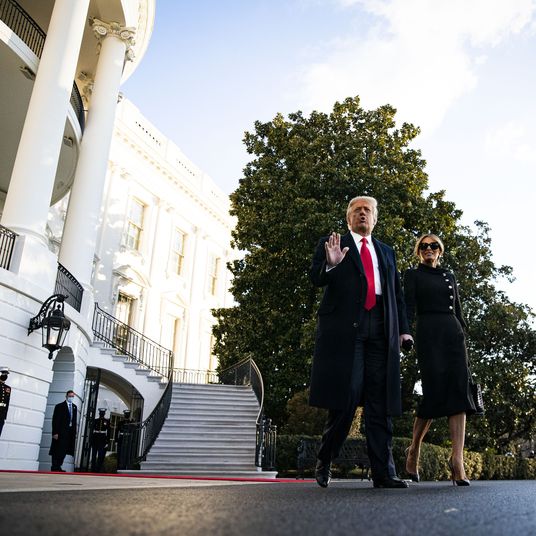Donald Trump has been telling anybody who would listen that if he wins a second term, his plan is to lock up his political enemies. “This is third-world-country stuff: ‘Arrest your opponent,’” Trump said last month. “And that means I can do that, too.” In an interview with Univision, he gave the same rationale:
“Yeah. If they do this, and they’ve already done it, but if they follow through on this, yeah, it could certainly happen in reverse,” he said. “It could certainly happen in reverse. What they’ve done is they’ve released the genie out of the box.”
He added later: “They have done something that allows the next party — I mean, if somebody, if I happen to be president and I see somebody who’s doing well and beating me very badly, I say, ‘Go down and indict them.’ They’d be out of business; they’d be out of the election.”
Obviously, Trump’s premise that he is being prosecuted by Joe Biden because he is running against him is false. Trump is being prosecuted because he is a career criminal, and there is no evidence any of the prosecutors taking him to court have communicated with President Biden.
But beneath this first lie, there’s a second lie: Trump only intends to prosecute his political enemies because they did it to him first. In fact, Trump has been planning to lock up his political opponents since he first ran for office, well before any of the current prosecutions began.
Trump ran for president threatening to lock up Hillary Clinton. Once in office, he basically never stopped demanding prosecutions against various critics.
In the spring of 2018, he told the White House counsel that he wanted to order Justice Department investigations of Clinton and former FBI director James Comey. In 2019, he repeatedly demanded investigations of Biden and attempted to extort Ukraine into announcing an investigation into the same. He commissioned intelligence agencies to find evidence that Comey, along with Andrew McCabe, Peter Stzrok, and Lisa Page, committed “treason.” In addition to insisting on prosecuting various enemies an unknown number of times in private, Trump made similar demands repeatedly in public on his Twitter account.
Trump’s first attorney general, Jeff Sessions, resisted his relentless demands for politicized prosecutions. His next attorney general, William Barr, partially resisted. Trump wound up appointing John Durham to lock up his deep-state enemies, a task Barr assisted by working closely with Durham (in violation of department guidelines designed to ensure special counsels are independent of the AG). Durham, however, failed to find the promised conspiracy and wound up humiliating himself and his backers by having his two main targets acquitted in court.
Trump and his supporters have studied these failures and are working on installing a new network of even more pliant lawyers and judges who will carry out his demands.
Conservatives have backhandedly justified this nakedly authoritarian plan by insisting Trump is being charged unfairly, or that his supporters consider it unfair, and arguing that liberals are setting the stage for Trump to retaliate. That is the same argument Trump makes by claiming he will do to Biden what Biden did to him. But the chronology could not be any more clear: Trump has always wanted to lock up his enemies, before any of his own legal problems began.





























